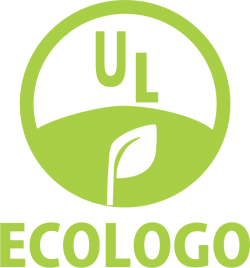UL Ecologo Certified Products
Washing hands with foaming soaps can save water.
Criteria for UL Ecologo Certified Products
Info on this product category: Hand Soaps
Why Go Green
Hand soaps on this page do not have antibacterial/antimicrobial triclosan or triclocarban chemicals. Those chemicals:
- Provide no benefits over plain soap and water (according to the US Centers for Disease Control)
- May decrease sperm counts
- Could make bacteria resistant to antibiotics
- Are linked to liver and inhalation toxicity
- May disrupt thyroid function at low concentrations
- Are structurally related to highly toxic and carcinogenic dioxins
Criteria for Hand Soaps
Criteria for Required products:
Hand soaps (foaming and non-foaming liquid formulations) must:
1. Contain no antimicrobial ingredients; and
2. Be currently certified by one of the following:
- Cradle to Cradle Certified Gold level or higher, version 3.1 or later
- Green Seal
- UL ECOLOGO
- US EPA Safer Choice Program
Last updated
Reports
The Real Cost of Institutional Green Cleaning (2009). Report by SF Environment that includes a cost survey of conventional vs. green cleaning products. Costs were roughly equivalent for most product categories. Costs of ready-to-use products averaged 15 times higher than concentrates; aerosols averaged 27 times higher.
Guide for City Staff
City Custodians:
- Are required to buy these cleaners (if needed):
- Dish soaps
- Floor finishes and strippers
- Furniture polish
- General purpose cleaners
- Glass cleaners
- Hand soaps
- Hand sanitizers
- Odor control
- Other cleaners, such as bathroom cleaners (non-disinfecting/non-sanitizing), including grout cleaners and toilet cleaners; carpet, rug and upholstery cleaners, including concentrated pre-spray, spot and stain removers, carpet shampoos and bonnet cleaners; cleaner-degreasers; enzymatic restroom cleaners; floor cleaners (including concentrated neutral floor cleaners, dust and damp mop cleaners); glass cleaners; multipurpose cleaners, including peroxide-based cleaners, deodorizers (odor control), toilet blocks and screens
- Toilet deodorizers
- Post the City department green cleaning checklist/poster.
- Post tips (for microfibers, disinfecting, dusting, polishing, floor care, kitchens, restrooms) and watch custodial green cleaning training videos in English, Cantonese, and Spanish made by SF Environment.
- Disinfectants are only important for surfaces like doorknobs.
- Switch to microfiber mops and cloths, which can prevent injuries because there's no need for heavy mop buckets.
- Install closed-loop dilution systems (if possible) to prevent employee exposure to hazardous concentrates.
Non-custodial City Staff:
- Try microfiber cloths, which can get rid of 99% of bacteria with plain water.
- Get discounted consumer general purpose cleaners, disinfectants, dish soaps, hand sanitizers.
- Make cleaners (air fresheners, oven cleaners, mold and mildew remover, wood furniture polish) with things like baking soda, castille soap, or lemon juice.
Recycling Instructions
It's illegal to trash cleaners (and other chemicals, electronics, lighting, metal, paints). So do one of the following:
- Use what you already have.
- Give them to someone who needs them.
- Legally and safely dispose them. Post this recycling poster above each trash bin. Then get a pick up.
Guide for Small Businesses & Homes
- Try microfiber mops and cloths, which can get rid of 99% of bacteria with plain water.
- Make your own cleaners from common materials like baking soda, castille soap, or lemon juice.
- See consumer products on GoodGuide.
- Use disinfectants sparingly. The most important surfaces are doorknobs.
- Choose ready-to-use, peroxide- or citric acid-based disinfectants. Avoid disinfectants that list hypochlorites or quaternary ammonium compounds as ingredients (e.g., ammonium chloride).
- Small businesses can save money by switching to industrial/institutional cleaners. Ready-to-use products are 15 times more expensive than concentrates.
- Custodial companies that are SF Green Businesses should watch custodial green cleaning training videos in English, Cantonese, and Spanish and consider posting Custodial Green Cleaning Tips (available in Spanish and Chinese) by SF Environment.
- Legally and safely dispose of cleaners (and other chemicals, electronics, lighting, metal, paints) in the San Francisco Bay Area or rest of the U.S.
Guide for Large Organizations
- Post the Custodial Green Cleaning Checklist/Poster and Tips (available in Spanish and Chinese).
- Watch custodial green cleaning training videos in English, Cantonese, and Spanish made by SF Environment.
- When creating contracts, paste specifications from the Criteria section above.
- Try microfiber mops and cloths, which can get rid of 99% of bacteria with plain water.
- Install closed-loop dilution systems to prevent employee exposure to hazardous concentrates.
- Legally and safely dispose of cleaners (and other chemicals, electronics, lighting, metal, paints) in the San Francisco Bay Area or rest of the U.S.





Write a Review